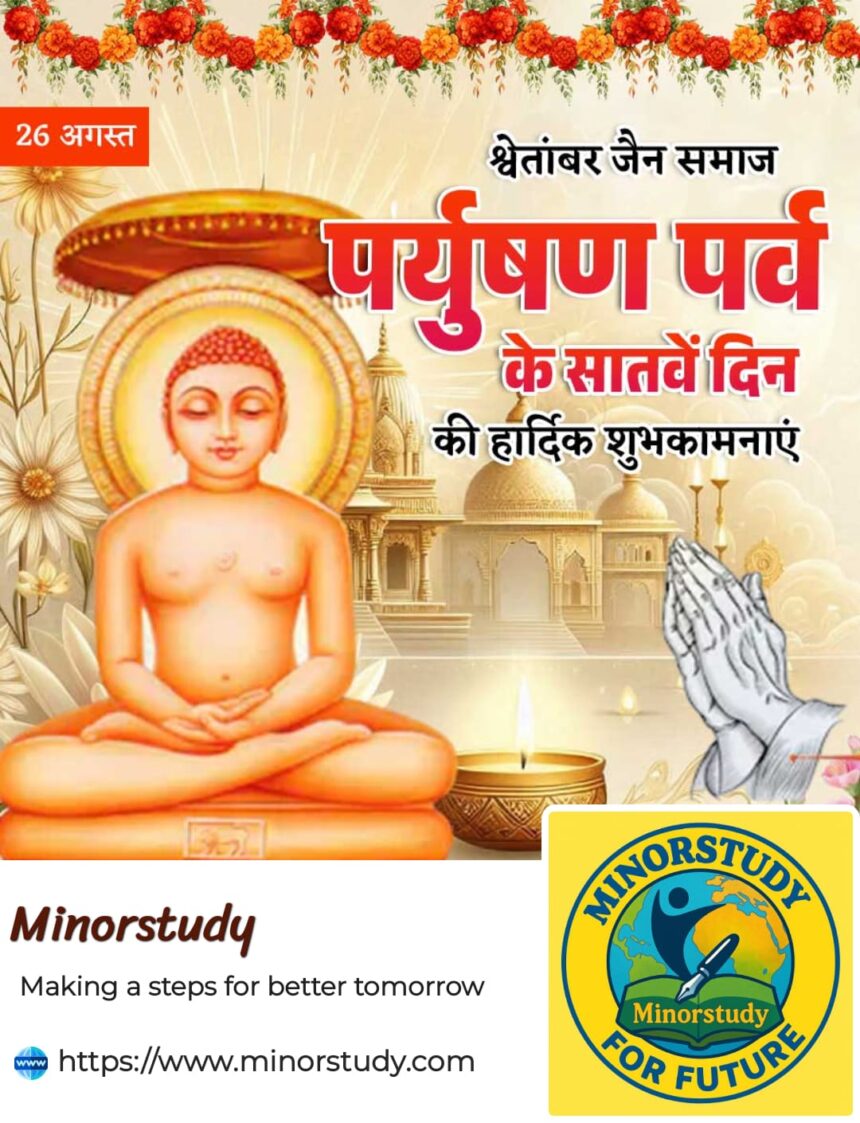Insights from the Seventh Day of Paryushan Festival That Bring Positivity to Life
Introduction
The Paryushan festival is one of the most sacred and spiritually profound observances in Jainism. Celebrated by Shwetambara Jains for 8 days and by Digambara Jains for 10 days (Das Lakshan Parva), it is a time of deep self-reflection, fasting, forgiveness, and inner purification.
- Introduction
- History of Paryushan Festival
- Timeline of Paryushan
- Importance of the Seventh Day of Paryushan
- 7 Amazing Facts About the Seventh Day of Paryushan
- Observances on the Seventh Day
- Wishing Messages for the Seventh Day of Paryushan
- FAQs About the Seventh Day of Paryushan
- Significance in Daily Life
- Importance in Society
- Daily Life Impacts
- Conclusion
Each day of Paryushan carries its own significance, and the seventh day is especially meaningful. It emphasizes atonement, humility, and preparation for forgiveness (which culminates on the eighth day, known as Samvatsari).
This article will take you on a comprehensive journey into the seventh day of the Paryushan festival—its history, rituals, timeline, significance, facts, observances, and impacts—all explained in a human-friendly and inspirational way.
History of Paryushan Festival
Origin: The word Paryushan comes from pari (all around) and ushen (to stay or come together). It refers to staying close to the soul by withdrawing from worldly distractions.
Ancient Roots: Jain monks and nuns, who would travel continuously, stayed in one place during the rainy season (Chaturmas). This period became a time for spiritual practices, giving rise to Paryushan.
Scriptural Basis: The festival is guided by Jain Agamas (holy texts), which encourage penance, meditation, self-restraint, and forgiveness.
Evolution: Over centuries, the tradition evolved into a structured festival where laypersons too participate through fasting, religious study, and acts of charity.
Timeline of Paryushan
Day 1–3: Focus on self-discipline, vows of non-violence (Ahimsa), and minimizing harm.
Day 4–5: Reading scriptures, reflection on truth and humility.
Day 6: Focus on penance, fasting, and preparing the mind for forgiveness.
Day 7: Atonement and purification; introspection deepens, and devotees prepare for Samvatsari Pratikraman.
Day 8 (Samvatsari): Culmination in Pratikraman (atonement ritual) and seeking forgiveness with the phrase “Micchami Dukkadam” (“May the evil I have done be fruitless”).
Importance of the Seventh Day of Paryushan
The seventh day acts as a spiritual bridge. It prepares the devotee for the ultimate forgiveness and renewal of the eighth day. Its significance lies in:
Deep Self-Reflection: Time to evaluate one’s actions, words, and thoughts over the past year.
Inner Purification: Through fasting, meditation, and penance.
Forgiveness in Practice: Not just theory but genuinely preparing to forgive and be forgiven.
Humility and Ego-Reduction: Realizing mistakes and shortcomings.
Strengthening Non-Attachment: Moving beyond material desires and focusing on spiritual growth.
7 Amazing Facts About the Seventh Day of Paryushan
It is often the day when extended fasting peaks, with some devotees not consuming even water (Nirjal Upvas).
Jain monks and nuns deliver discourses on the importance of forgiveness and repentance.
Special emphasis is placed on Pratikraman, the act of reviewing past mistakes.
The seventh day creates a mental readiness for Samvatsari, the great day of forgiveness.
Lay followers donate generously to charities, temples, and animal shelters.
Scriptures like the Kalpa Sutra are recited in detail on this day.
The mood is one of intense humility, silence, and reflection.
Observances on the Seventh Day
Fasting: Many Jains practice Upvas (fast) or Ekasan (eating once a day). Some even follow Attham tap, an 8-day continuous fast leading up to Samvatsari.
Prayers & Pujas: Worship of Tirthankaras with offerings of rice, flowers, and lamps.
Scriptural Reading: Study of Jain Agamas, particularly focusing on repentance and forgiveness.
Meditation: Silent introspection and chanting of Navkar Mantra.
Charity: Donating food to the needy, providing water bowls for animals, and other acts of kindness.
Wishing Messages for the Seventh Day of Paryushan
“On this seventh day of Paryushan, may your heart be filled with forgiveness and your soul shine with purity.”
“Wishing you peace, reflection, and spiritual strength this Paryushan.”
“Let go of anger, embrace humility, and prepare for forgiveness—Happy Seventh Day of Paryushan.”
FAQs About the Seventh Day of Paryushan
Q1. What is the focus of the seventh day of Paryushan?
The day emphasizes repentance, reflection, and preparation for forgiveness on Samvatsari.
Q2. Is fasting compulsory on the seventh day?
No, it is voluntary. Some fast strictly, while others observe moderation according to their capacity.
Q3. What do Jains read on this day?
Texts like the Kalpa Sutra and Pratikraman Sutra are studied in depth.
Q4. Why is forgiveness important?
Forgiveness helps release negativity, reduces karmic burden, and fosters compassion.
Q5. Can non-Jains participate?
Yes, many non-Jains join in acts of charity and practice forgiveness in daily life during this time.
Significance in Daily Life
Personal Healing: Forgiveness reduces stress and promotes inner peace.
Better Relationships: By letting go of grudges, relationships are healed.
Cultural Preservation: Strengthens Jain traditions and values of non-violence.
Social Harmony: Encourages unity and kindness in society.
Spiritual Growth: Provides a chance to cleanse karmas and elevate consciousness.
Importance in Society
Promotes non-violence (Ahimsa), which can reduce conflict in families and communities.
Encourages ethical living, including vegetarianism and kindness toward animals.
Creates a culture of forgiveness and humility, reducing anger and ego-driven behavior.
Inspires charity and compassion, uplifting the underprivileged.
Provides a moral framework for living peacefully in a modern, often stressful world.
Daily Life Impacts
Mindfulness: Helps individuals become more aware of their thoughts and actions.
Stress Reduction: By practicing forgiveness, stress and anger are minimized.
Family Unity: The spirit of letting go strengthens family ties.
Balanced Living: Fasting teaches moderation and discipline.
Ethical Choices: Reinforces vegetarianism and sustainable living.
Conclusion
The seventh day of Paryushan is not just a step in a religious festival—it is a life lesson in humility, reflection, and forgiveness. It teaches us to:
Look within and accept our mistakes.
Forgive others and seek forgiveness.
Reduce desires and live simply.
Walk closer to our true, pure soul.
In a modern world full of stress, ego, and conflicts, the seventh day of Paryushan stands out as a beacon of peace, compassion, and positivity.
So, as we approach the eighth day of forgiveness (Samvatsari), let us carry forward the timeless message of Jainism:
Live with Ahimsa (non-violence), Satya (truth), and Kshama (forgiveness).







